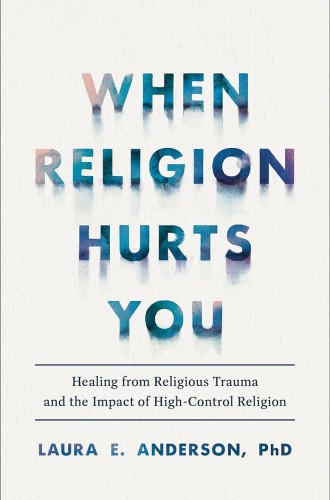Religion that harms
Drawing on both research and personal experience, therapist Laura Anderson explores the trauma caused by high-control religion.
“I don’t know if you’re truly saved because you all aren’t acting like you’re saved. I pray that the Lord will convict you of your rebellious spirits,” my science teacher said harshly. We all just rolled our eyes because this was the hundredth time this teacher said this to us, and it was only two months into eighth grade. “God put authorities in place over you for a reason, so disobeying us would be the same as disobeying God,” another teacher regularly reminded us. “Having sex before marriage is like giving your husband a chewed piece of gum on your wedding night, so you should sign this purity pledge to God,” said our girls’ group leader. It would take years to heal from the religious trauma these statements caused.
Therapist Laura Anderson defines religious trauma as the body’s response to overwhelming experiences that happen within religion, which she calls adverse religious experiences. Drawing on her research and her own personal experience, she discusses the mental and physical effects of religious trauma caused by high-control religion (which she refers to as HCR) and proposes ways to seek healing. She explains the neuroscience behind psychological concepts such as complex post-traumatic stress disorder in an understandable way without sacrificing depth or quality. This makes the discussion holistic in a way that helps readers with religious trauma better understand the physical and mental implications of their experiences.
Something that may be surprising about high-control religion is the intensity and extent of authority its leaders impose on adherents. Anderson makes connections “between domestic violence and dynamics of power and control within HCRs,” highlighting the ways in which such groups isolate members from outsiders, meet the human need for connection, and create dependence on the religious community and leaders. Leaving these systems can be difficult because life outside them is unknown, but the people who do leave experience mental and physical symptoms similar to those of people who leave violent domestic relationships. It is especially complex to leave and heal from high-control religion because “much of what we now consider abusive and harmful behaviors were first learned as spiritual practices, hierarchies, and disciplines, which were seen within the religious system as essential for living a godly life.” What does it mean to accept and heal from the fact that the people who were supposed to love you and show you life-giving faith actually perpetuated harm that will take years to process?





